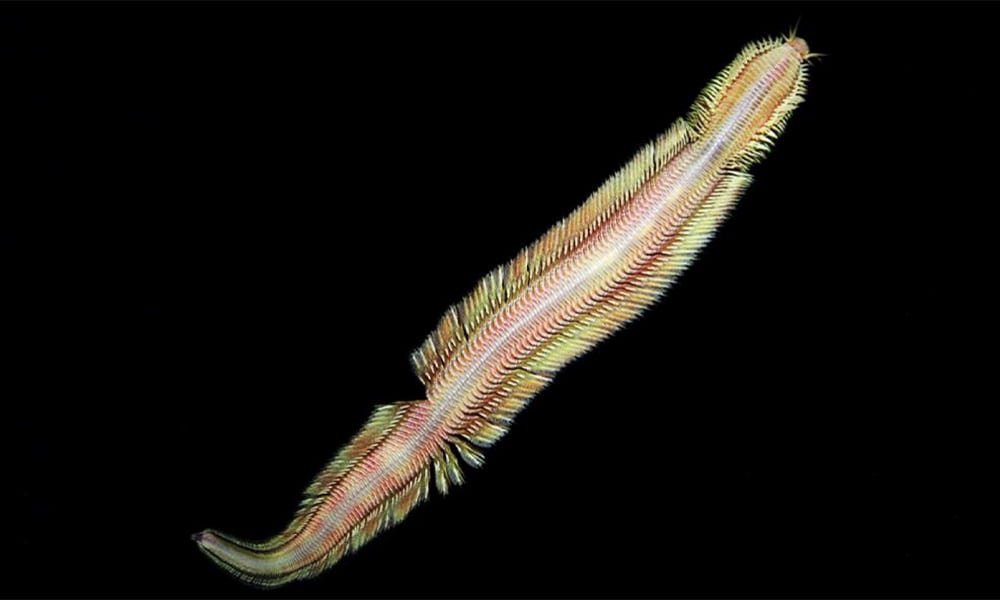A new deep-sea worm was discovered in a methane seep located about 50 kilometers off the Pacific coast of Costa Rica. This marine research was also supported by the U.S. National Science Foundation (NSF).
The discovery, published March 6 in the scientific journal PLOS ONE, was made by marine biologists from the Scripps Institution of Oceanography, the University of California, San Diego, and other international scientists.
Greg Rouse, of the Scripps Institution of Oceanography, explained in the publication that the worm, called Pectinereis strickrotti, has an elongated body flanked by a row of feathery appendages with gill tips called parapodia on each side.
“Its sinuous way of swimming was reminiscent of a snake,” Rouse said, in remarks replicated by the Scripps Institution on the website.
The species is named after Bruce Strickrott of the Woods Hole Oceanographic Institution, who is the lead pilot of the famous deep-sea submersible Alvin, which was instrumental in the effort to locate and collect the creature.
“Rouse and colleagues have found approximately 450 species in Costa Rica’s methane seeps since 2009 and this latest discovery brings to 48 the number of species that were new to science. These impressive statistics underscore how much more there is to learn about these ecosystems, as well as their biological importance,” the institute said.
The publication details that, like hydrothermal vents, methane seep ecosystems are powered by chemical energy rather than sunlight.
“Some microbes developed the ability to consume methane. Microbes that can convert methane into food create the basis of a food web that in the Costa Rica seeps is dominated by mussels, crabs, and soft-bodied polychaete worms such as this new species,” the report cites.
The research team collected three male Pectinereis strickrotti epitopes and part of one female. Following their successful collection, the team used the specimens to perform anatomical analyses and study the worm’s DNA to establish its evolutionary relationships within the ragworm family. The specimens now reside in the Scripps Benthic Invertebrate Collection and the Zoology Museum of the University of Costa Rica (UCR).
Compared to most ragworms, Pectinereis strickrotti is unusual in several ways: it lives in the deep sea, whereas most of its evolutionary relatives inhabit shallower waters; its parapodia are covered with gills, whereas most worms absorb oxygen through their parapodia without the aid of true gills; the males had large spines at the end of the tail which might have something to do with reproduction but would require further study.
Due to total darkness at 1,000 meters (3,280 feet) under the sea, the new species is blind. Pectinereis strickrotti has robust, fearsome-looking jaws, but its diet is still unknown. It could feed on bacteria as readily as other larger worms. Although its coloration would be a moot point in life, given its black habitat, Rouse explained that the worm appeared pink under Alvin’s lights and that this was likely due to the color of its blood






